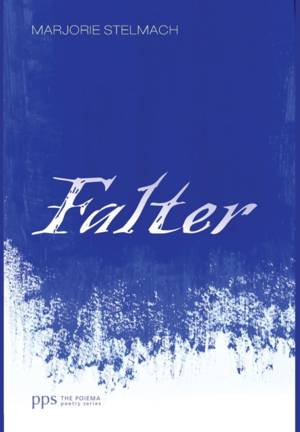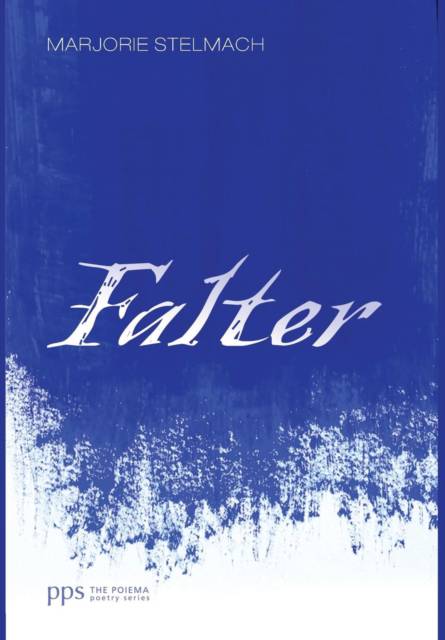
Bedankt voor het vertrouwen het afgelopen jaar! Om jou te bedanken bieden we GRATIS verzending (in België) aan op alles gedurende de hele maand januari.
- Afhalen na 1 uur in een winkel met voorraad
- In januari gratis thuislevering in België
- Ruim aanbod met 7 miljoen producten
Bedankt voor het vertrouwen het afgelopen jaar! Om jou te bedanken bieden we GRATIS verzending (in België) aan op alles gedurende de hele maand januari.
- Afhalen na 1 uur in een winkel met voorraad
- In januari gratis thuislevering in België
- Ruim aanbod met 7 miljoen producten
Zoeken
Omschrijving
The poems in Marjorie Stelmach's Falter attempt to comprehend what Soren Kierkegaard in Fear and Trembling deems our ""highest passion"" faith--a task that he claims has remained the same for each generation and ""is always adequate for a person's lifetime."" In the opening section, ""Inscrutability & Error,"" the poems consider an assortment of obstacles--misinterpretations, distractions, self-delusions, dead ends, and excuses--that complicate this task, leaving the various seekers in frustration, even despair. The title poem, which makes up the central section, follows a woman through the first difficult days of a silent retreat, guided by readings from The Wisdom of the Desert Fathers, contemplation of the natural world, and meditation on her own personal history. The poems of the final section, ""The Breaking Strain of Grace,"" gather the hard-won bits of understanding arrived at in parts one and two and apply them to the sorrows and losses of later life. Although the pilgrimage toward a steadfast faith must continue, these poems show the seeker arriving at some provisional faiths that may serve as she nears the conclusion of her allotted lifetime.
Specificaties
Betrokkenen
- Auteur(s):
- Uitgeverij:
Inhoud
- Aantal bladzijden:
- 98
- Taal:
- Engels
- Reeks:
- Reeksnummer:
- nr. 21
Eigenschappen
- Productcode (EAN):
- 9781532606212
- Verschijningsdatum:
- 20/02/2017
- Uitvoering:
- Hardcover
- Formaat:
- Genaaid
- Afmetingen:
- 152 mm x 229 mm
- Gewicht:
- 303 g

Alleen bij Standaard Boekhandel
+ 99 punten op je klantenkaart van Standaard Boekhandel
Beoordelingen
We publiceren alleen reviews die voldoen aan de voorwaarden voor reviews. Bekijk onze voorwaarden voor reviews.









